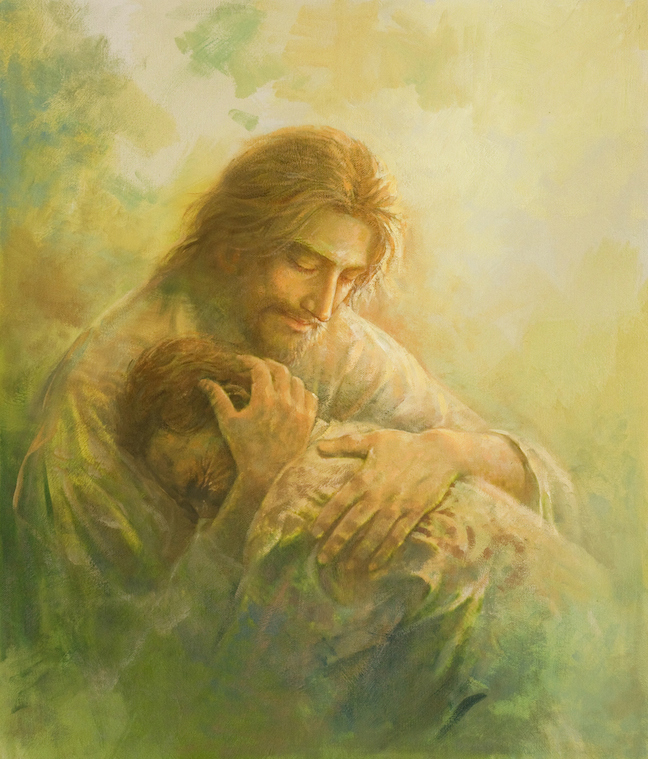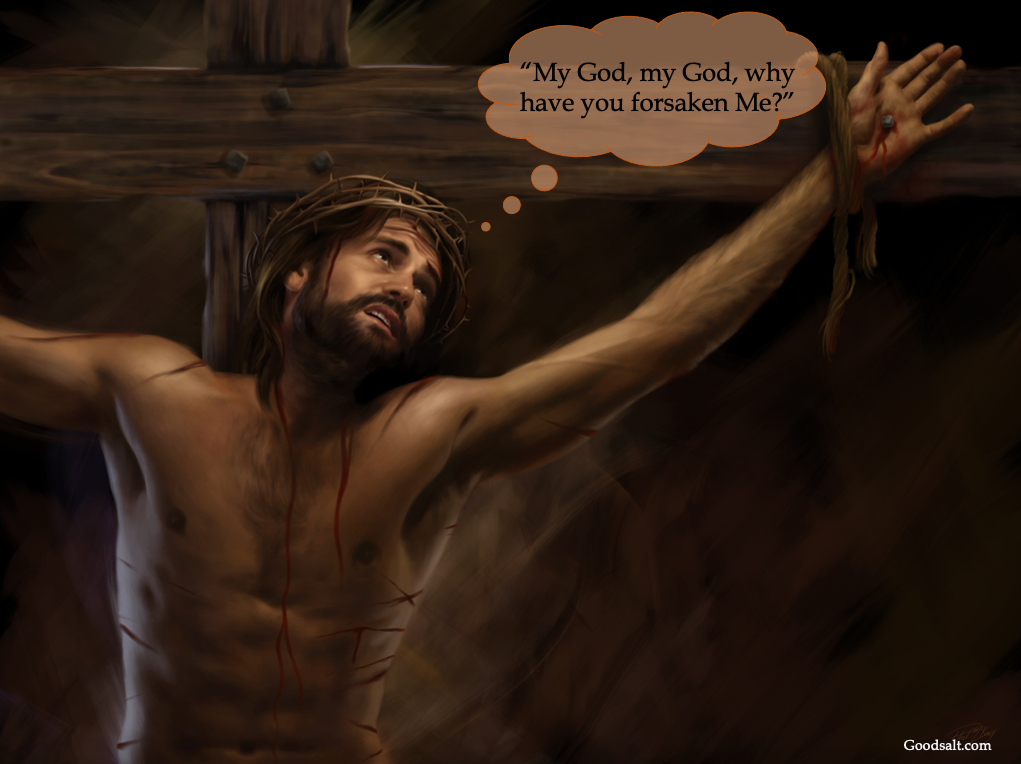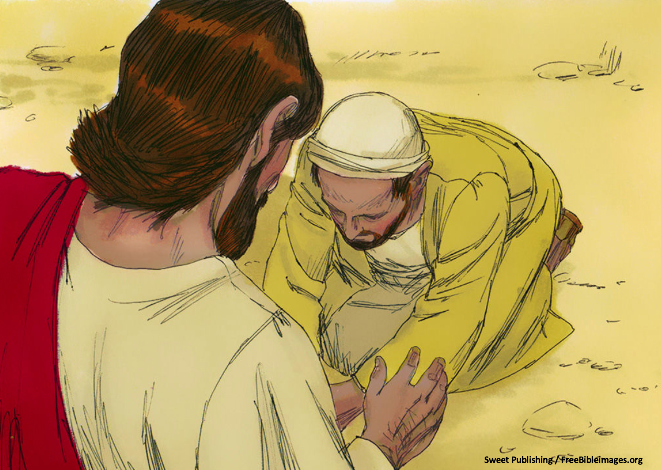“All that the Father gives Me will come to Me, and the one who comes to Me I will by no means cast out.” John 6:37
After miraculously feeding thousands of people (John 6:1-14) and walking on water (John 6:15-21), Jesus begins His discourse on the bread of life for those who hunger spiritually (John 6:22-58). In the middle of this discourse, Christ makes an incredible promise to His listening audience: “All that the Father gives Me will come to Me, and the one who comes to Me I will by no means cast out.” (John 6:37). Let’s look closely at what Jesus says:
- “All…,” not some or most, who have ever believed in Jesus prior to the Church Age are given to Christ by “the Father.” Before the Church Age (Acts 2:1ff), those who believed in Jesus as the coming Messiah belonged to God the Father. Because of Israel’s rejection of Christ (Matthew 12:22ff), Jesus anticipated the transfer of ownership of Old Testament believers to Him by the Father in anticipation of the coming Church Age (Matthew 16:18; cf. Acts 2:1ff). 1
- “…the Father…” The safe keeping of Old Testament believers is not solely about a gracious Son trying to calm down an uncontrollably angry Father. The Father lovingly takes the initiative. 2
- “…gives…,” not “quibbles over.” It is the Father’s great delight to entrust rebellious sinners who believed in the coming Messiah into the safe keeping of His Son.
- “…will come…” The Father’s safe keeping of a believing sinner is never thwarted. All who have believed in Jesus in the Old Testament are securely kept by Christ after this transfer of ownership from the Father to the Son.
- “The one who comes…” While the Father loves “all,” coming to Christ is an individual’s choice. God cares about “the one” sinner who is lost without Christ. We are not robots. We are not drawn to Christ against our wills kicking and screaming. Each human being has the freedom to choose to come to Christ by believing in Him (cf. John 6:35).
- “…comes to Me…” God is not inviting sinners to come to a set of doctrines, to a church, or even to the gospel. He is inviting us to come to a Person – Jesus Christ. 3
- “…I will by no means cast out.” This phrase “I will by no means cast out” is emphatic in the Greek language (ou mē ekbalō exō). Literally it means, “I will no not ever cast out” the one who comes to Me. In Jesus’ day and ours, there are lost sinners who are deeply afraid that Jesus will not welcome them into His fold or family much less keep them forever. If there was no fear of being cast out, then there would be no need for Jesus to say this so emphatically both then and now.
We may have many objections to this incredible promise from Jesus:
- “But Lord, You don’t realize what I have done in my past!” “I will by no means cast out.”
- “I have proudly turned away from You.” “I will by no means cast out.”
- “I relied totally on myself.” “I will by no means cast out.”
- “I have deeply hurt others with my own brand of selfishness and sin.” “I will by no means cast out.”
- “I have served Satan all my life.” “I will by no means cast out.”
- “I have sinned against Your grace.” “I will by no means cast out.”
- “I have sinned against Your mercy.” “I will by no means cast out.”
- “I have sinned against Your light.” “I will by no means cast out.”
- “I have sinned against Your love.” “I will by no means cast out.”
- “I have no good thing to bring with me.” “I will by no means cast out.”
- “I cannot measure up to Your standard of holiness.” “I will by no means cast out.” 4
Jesus’ promise answers all our objections. Even when we run out of specific sins and failures, we may anticipate that Jesus will eventually reject us when He gets to know us better. We say to Him, “Lord, You know me better than anyone else, for sure, but You don’t know the darkness that is hidden from everyone deep in my soul.” Christ says, “I know it all.”
We retort, “But the thing is, it isn’t just my past. It is also my present.” “I understand,” He replies.
“But I don’t know if I can break free from this sin any time soon.” “That’s the only kind of person I am here to help,” Jesus says.
We say, “The burden is getting heavier and heavier all the time.” “Then let Me carry it,” He offers.
“It is too much to carry, Lord.” “Not for Me,” He assures.
“You don’t understand, Jesus. My sins are not against others. They are against You.” “Then I am the most suited to forgive them,” He responds.
“But the more of the wickedness You discover in me, the sooner You will reject me.” 5 “The one who comes to Me I will by no means cast out.”
When we come to Christ in faith we will be welcomed forever. The only condition for enjoying such everlasting love is to come to Him just as we are in faith. Jesus does not say, “The one who comes to Me feeling bad enough about their sin,” or “The one who comes to Me with a load of good works,” or “The one who comes to Me with extra devotion.” Christ simply says, “The one who comes to Me.” This is God’s amazing grace. It cannot be earned, and it cannot be undone. Once you come to Christ in simple faith, you are God’s child forever.
There may be some of us who still do not accept this assurance from Christ. It may be because we come from backgrounds which are filled with rejection. The main reason some of us have a hard time trusting people today is because we have experienced so much rejection while growing up. Perhaps a parent criticized us for everything we did, a teacher humiliated us, a friend betrayed us, a spouse left us, or an employer terminated us.
Every human being has limits. If we offend enough, if a relationship gets damaged enough, if we betray enough, we are cast out. The walls go up. But with Jesus, our sins and weaknesses are what qualify us to come to Him. Nothing but coming to Him in faith is required. 6
You may think, “My sins may not exhaust Christ’s acceptance of me, but what about my pain? What if my pain keeps piling up, and numbness starts to take over? As the months go by, won’t Jesus eventually cast me out because my burdens are too great for Him? Surely such intense pain is not designed for someone who comes to Christ and is promised never to be cast out?”
But Jesus does not say that “the one who comes with pain-free lives will by no means be cast out.” He simply says, “the one who comes to Me.” It is not what life gives to us but to Whom we come to in faith that determines Christ’s permanent acceptance of us. Jesus says we come to Him to enjoy His everlasting love. 7
I can hear someone says, “But what if I stop believing in Jesus after I come to Him? Won’t He cast me out?” 8 Jesus did not say, “The one who comes to Me and keeps coming to Me.” He simply says, “The one who comes to Me I will by no means cast out.” If Christ were to cast out a person who stops believing in Him after his or her conversion, He would have told a lie here. Coming to Christ in faith has permanent results. Jesus cannot lie because He is God (John 1:1; I John 5:20) Who is “full of truth” (John 1:14) and is “the truth” (John 14:6), and He never breaks His promise of eternal life (Titus 1:2). Jesus guarantees you will never be rejected by Him. If we will come to Jesus on His terms – believe in Him (even if it is just once) – He guarantees to accept us forever!
Prayer: Lord Jesus, thank You for taking our place on the cross when You received the punishment for sin that should have been ours so that when we come to You in faith we will never be cast out of God’s family. Although many of us have been deeply wounded by the rejection of others, please help us learn to trust You knowing You will never reject us regardless of what we or others do, say, or think. Heal us so we are no longer driven by the fear of rejection. Help us to rest in Your total acceptance of us. No longer do we need to seek the love and approval of others because we are totally loved and accepted by You. Use us Lord Jesus to share this good news with those who need it the most. We love You Lord and seek to live for You now. In Your matchless name we pray. Amen.
ENDNOTES:
1. Anthony B. Badger, Confronting Calvinism: A Free Grace Refutation and Biblical Resolution of Radical Reformed Soteriology (Anthony Badger, 2013), pp. 185-186.
2. Dane Ortlund, Gentle and Lowly: The Heart of Christ for Sinners and Suffers (Wheaton, IL: Crossway, 2020), pg. 60.
3. Adapted from Ibid., pp. 60-61 cites John Bunyan, Come and Welcome to Jesus Christ (Edinburgh: Banner of Truth, 2004) and in Vol. 1 The Works of John Bunyan, 3 Vols., ed. George Offor (repr., Edinburgh: Banner of Truth, 1991, pp. 240-299.
4. Adapted from Ortlund, pg. 62 who cites Bunyan in Come and Welcome to Jesus in The Works of John Bunyan, pp. 279-280.
5. Ortlund, pp. 63-64.
6. Ibid., pg. 64.
7. Ibid., pp. 64-65.
8. While Ortlund (pp. 65-66) and other Puritans believe that a true believer can never fall away from Christ (stop believing in Christ), nothing in Jesus’ promise suggests such an understanding. Our eternal security is not based upon our enduring faith but upon our Savior’s enduring faithfulness to His promises (2 Timothy 2:13). See Charles Stanley, Eternal Security, Can You Be Sure? (Nashville: Oliver Nelson, 1990), pg. 80.






